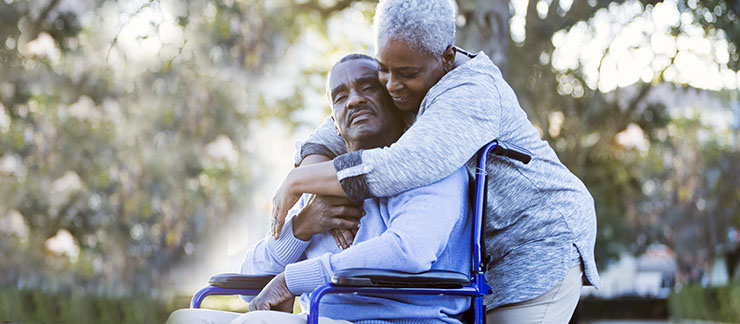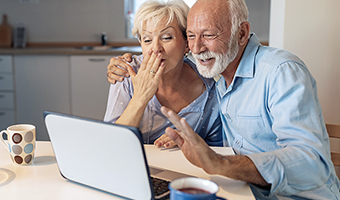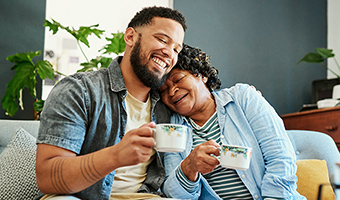Staying Safe at Home After a Stroke
A stroke is a frightening and life-altering experience for seniors and their families. Depending on the severity of the brain attack, a stroke survivor may face difficulties with mobility, vision, speech, swallowing, emotions, cognitive functioning, and performing everyday tasks. When this occurs, it’s important to have a home care plan to keep your senior safe.
After discharge from a hospital, a post-stroke plan may include hiring a non-medical in-home personal caregiver to provide long-term assistance with daily tasks such as:
- Bathing
- Dressing
- Toileting
- Grooming
- Light housekeeping
- Meal preparation
Personal care providers are different than home health providers, who typically offer short-term medical care during brief home visits under the supervision of a physician.
How Can Visiting Angels Caregivers Help Stroke Survivors Stay Safe at Home?
Visiting Angels’ professional caregivers use stroke-specific training to understand signs and symptoms while providing non-medical, comfort-focused dedicated support. Caregivers can contribute to senior safety by:
- Reducing fall risk
After a stroke, seniors may experience weakness and paralysis in their arms or legs. These mobility limitations — especially when combined with extreme fatigue during recovery — can increase the chances of a fall or household accident.
Visiting Angels’ caregivers can assist older adults as they move around the home, navigate stairs or the bathroom, and get into and out of bed. A Fall Prevention Program helps caregivers and care coordinators identify areas of concern in the home and recommend modifications to reduce fall risk.
- Assisting with household tasks
Stroke survivors may have physical or cognitive issues that prevent them from driving or managing tasks such as laundry, cooking, shopping, or housekeeping. Visiting Angels’ caregivers can provide or arrange for transportation to appointments, run errands, prepare meals, and handle light household duties.
- Giving reminders for medication, exercise, and appointments
Your loved one’s post-stroke care may involve taking medications, performing physical or occupational therapy exercises at home, and/or attending medical appointments critical to recovery and long-term health. Although Visiting Angels’ caregivers cannot provide medical care, they can remind seniors when it’s time to take medication, do exercises, or prepare for a home health or in-person medical visit.
- Following dietary recommendations
Difficulties in eating and swallowing can happen following a stroke. A senior may have to temporarily or permanently follow a special diet to avoid choking and other complications. Seniors may also need to avoid or limit certain foods due to interactions with medications.
A Visiting Angels’ caregiver can prepare foods per a prescribed diet and support older adults during mealtimes so they receive the necessary nutrition. An in-home caregiver can also remind seniors of speech therapy appointments and encourage them to practice prescribed speech and swallowing exercises.
- Watching for signs of a second stroke
Nearly 1 in 4 strokes occur in people who have had a previous stroke, according to the U.S. Centers for Disease Control and Prevention (CDC). Statistics show that stroke patients who arrive at the emergency room within three hours of their first symptom have less disability three months into recovery than those who received delayed care.
Visiting Angels’ caregivers can identify signs of a second stroke and call dial 911 for help if necessary — which could save a loved one’s life. A caregiver can also direct paramedics to a senior’s emergency medical file that contains vital health and medical information for paramedics and hospital staff.
Reduce Hospital Readmission
When a loved one has suffered a stroke, professional senior care services can be an enormous help. In-home professional caregivers will support stroke survivors and reduce stress for family caregivers. Visiting Angels provides a “Ready, Set, Go Home” program that helps seniors successfully transition home after hospitalization through a customized approach that begins at the hospital. The program also includes home visits to promote a safe recovery by lowering the risk of hospital readmissions related to falls and other accidents.
If your loved one needs in-home care following a stroke, Visiting Angels’ care coordinators are available to discuss the Ready, Set, Go Home program and much more during a free care consultation.













